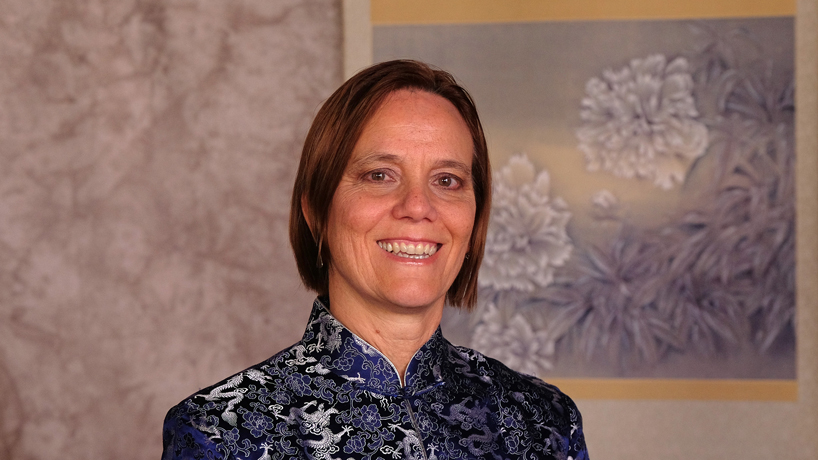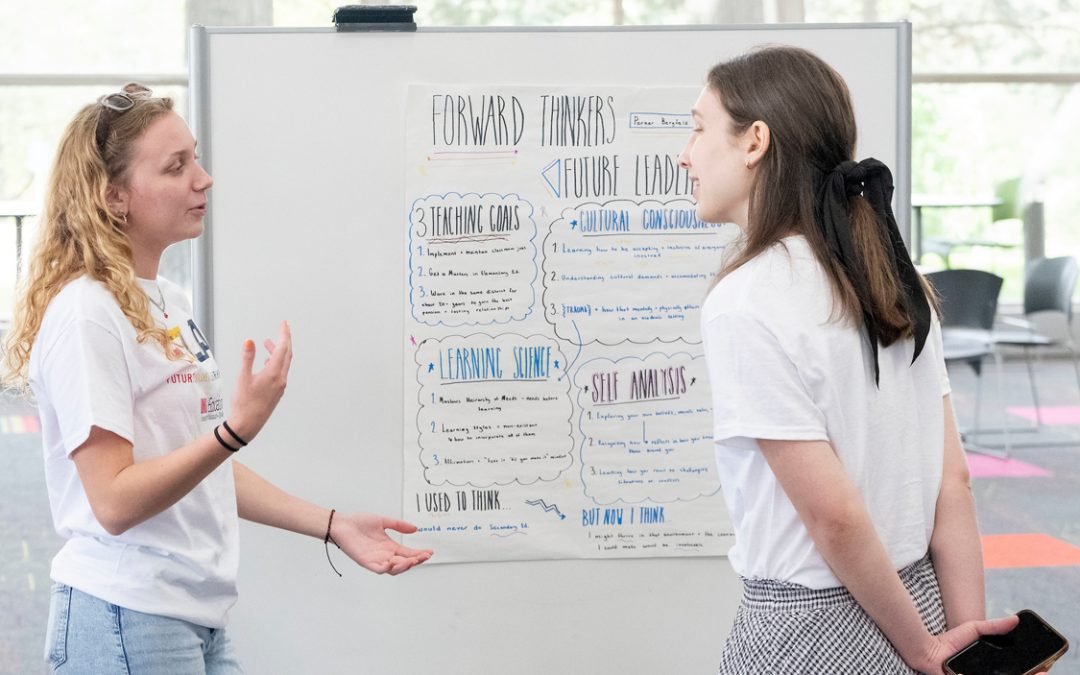
UMSL Anthropology Professor Susan Brownell spoke to Agence France-Presse about the lasting impact hosting the 2008 Olympic Summer Games has had on China in the 10 years since. The story was widely distributed around the globe. (Photo by August Jennewein)
A decade has passed since the Olympic flame began burning over Beijing at the start of the 2008 Summer Games.
Agence France-Presse, the international news agency headquartered in Paris, used the anniversary to examine the lasting impact they had on China.
Among the expert voices found in a story that spread around the globe, including in countries such as Cambodia, Thailand, Indonesia and Singapore in Southeast Asia, was Susan Brownell, a professor in the Department of Anthropology and Archaeology at the University of Missouri–St. Louis.
She lent her voice to describe how the games – tightly choreographed and elaborately executed after years of preparation to showcase China on the world stage – did not lead to the political change within the country that many in the West had hoped.
Brownell, who teaches courses at UMSL related to China, spent the 2007-08 academic year doing research on the Beijing Olympics as a Fulbright Senior Researcher at the Beijing Sport University. In the article, she discussed how China has countered outside criticism amid tighter government control in the Communist country over the past 10 years and pointed to China’s investment in external public relations.
After the games, one of the “huge changes was communications. Particularly the effort to communicate with the outside world,” Brownell told AFP, in what the news agency described as “part of a wide-ranging effort to increase Chinese soft power.”
That’s led to China removing travel and interview restrictions on foreign reporters that were first relaxed ahead of the 2008 Games.
“The pressure on Beijing really wasn’t ‘you have to communicate better,’” Brownell told AFP. “The pressure had to do with other things. So, the result wasn’t in the realm that critics wanted.”
The Olympics are headed back to Beijing in four years – this time for the 2022 Winter Games.
Brownell told AFP she expects the next Chinese Olympics to be more relaxed.
“There’s only one coming-out party,” Brownell said. “There’s only one Olympic Games, and they’ve already had it.”














